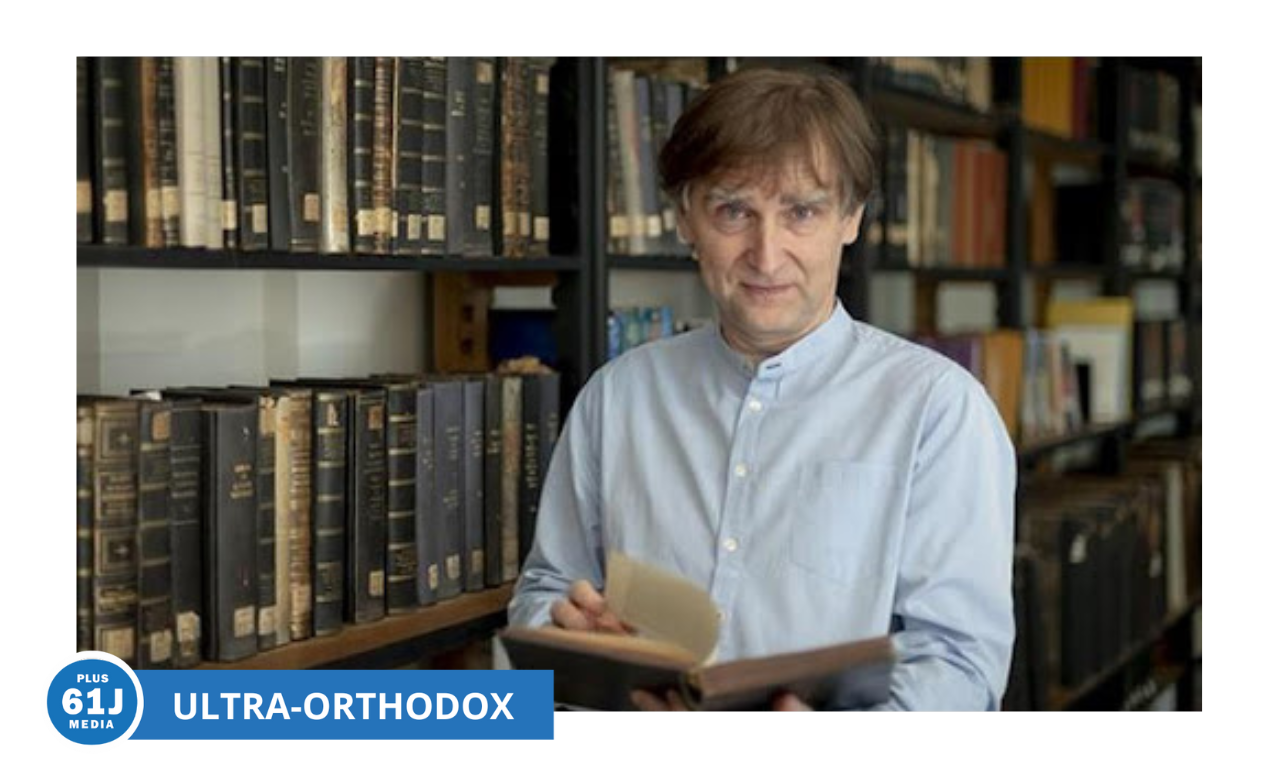Published: 24 November 2015
Last updated: 4 March 2024
Walzer is both a clear-eyed realist and unashamedly left-wing, and in his most recent book, The Paradox of Liberation, he looks at three independent states established after World War II - India, Israel and Algeria - to assess why the liberation movements in each country lost power. His thesis is that there has been a shift towards religious rule, but he opines that there is no consistent reason why that should be so. The book describes some important political trends pertaining to these 20th century nation-states, but it has some significant shortcomings, particularly in understanding the nature and role of religion in each of the environments analysed.
Walzer identifies liberators as people who “lead a genuinely national struggle against the foreign rulers of their people.”2 He does not see religious revival as part of that struggle. No doubt, Walzer also does not conceive himself as a religious man. Yet a fundamental underpinning of Zionism as a national liberation movement was the idea of Zion in the Jewish faith. The return to Zion was a redemptive act. But the strand of Zionism favoured by Walzer, Labour Zionism, as he seeks to explain, did not strive for redemption. It strove for normality.3
Liberation from foreign rule means, to Walzer, an end to unfair discrimination against minorities. He criticises the now endemic discrimination against Israel’s Arab minority whilst acknowledging that “within Israel proper the worst forms of abuse have been avoided. Arab political parties function freely, and a remarkably high number of Arab citizens voted in Israeli elections (Jews voted in larger numbers).” He ascribes this success to the liberation politics of Labour Zionism and not to any covenant with God to deal justly with our fellow human beings. He does not recognise that faithful Jews are commanded “not to wrong or oppress the stranger because we were once strangers in the land of Egypt”.4
Walzer sees Israel as a state for Jews (normal in the liberalised Western world) much more than as a Jewish State (helping to fulfil Jewish redemption). The distinction is elucidated in a blog that my friend and colleague Peta Jones Pellach wrote on 16 March 2015:
“I am convinced that a ‘Jewish state’ is not just a state where Jews live. The founders of the State had high ideals about the society they were creating. They believed that the restoration of the Jewish state would be significant not just in providing a home for Jews but in creating a ‘new Jew’ and providing her with the opportunity to create a new Jewish culture which would be expressed through the ethos of the State. That idealism is rarely heard in the current climate.”5
She describes a Jewish state as one committed to Justice, which safeguards minorities, which knows and honours its past and like Hatikvah embodies hope based on ideas of redemption. That is a Jewishly religious Israel. I agree. To Peta and to me religion provides moral guidance and standards to live by. An Israel that is both redemptive and normal is not too much to strive for.
So my major criticism of The Paradox of Liberation is that the combination of redemption with normality is not one that Walzer’s otherwise entirely readable and worthwhile book either contemplates or grapples with. And differing views on the possibility of this combination just might explain the struggle within the Israeli political dialectic. Avishai Ehrlich, for example, acknowledged that Labour Zionism retained redemptive connotations of the re-establishment of Israel as a bridge between past and present.6 The idea of redemption of the Land, since the First Aliyah (1882-1903), has referred to the purchase, reclamation and settlement of land in Eretz Israel by the Jewish National Fund, by private individuals and organisations and later by the State of Israel itself. The idea of redemption was essential to normalcy and, many would argue, the reverse also remains true.7 Too many critics of Israel, purporting to be left-wing but lacking the realism of Walzer, set the bar too high in these regards.
On the plus side, Walzer’s analysis correctly identifies that each of the ruling parties - Congress in India, Mapai (Labour) in Israel and the FLN in Algeria - grew complacent and tired, and was ultimately replaced; the FLN after only three years, Congress after two decades and Mapai after three decades. In Algeria, the left regime of Ben Bella lasted only three years and was replaced with a more traditional military dictatorship; perhaps the most common form of government in the Arab world.
Walzer illustrates his theses with a number of useful, relevant and indeed compelling examples.
In the Indian context, Walzer quotes Prime Minister Nehru who spoke up for a new India which was “creating a just state by just means” and “creating a secular state in a religious country”.8 Nehru tried to create an Indian culture that was value-blind to both Hinduism and Islam in the nation’s body politic. Yet as time went forward, legislation dealing with personal behaviour reflected Hindu culture and neglected minority faiths and cultures.
Nehru recognised that India was fundamentally a nation of religious people, most of whom were Hindu, some of whom were Muslim and there were a few other minorities. There was a clear recognition that Hinduism was the culture of the nation. Consequently, Indian governments have nurtured Hindu culture and practice in a way not extended to Islam, for example. Since the publication of The Paradox of Liberation, India has moved towards a nationalist Hindu government under Prime Minister Modi.
Walzer sees a similar trend in Israel, with a gradual shift away from secularism. He goes on to draw the distinction between Labour Zionism and that which he describes as “religious zealotry”. As observed above, it seems to be outside Professor Walzer’s conception to understand that the Jewish religion does not depend upon zealotry to underpin the morality and the ethics of the state of Israel. Walzer argues that secularism was the force that enabled minorities to flourish in both India and Israel. He says that religious zealotry opposes that trend.9 However, to be religious ought not be equated with being a zealot, blindly pursuing a cause, a distinction that regrettably escapes Walzer’s analysis.
Walzer identifies the difference between tolerance of minorities and respect for minorities as a key credo for national liberation. It is however difficult to see precisely when and how India or Israel moved from respect to mere tolerance. The book raises but does not fully explore examples which do not neatly fit the thesis.
The Australian-Indian writer Nav K Samir, self-described as half-Punjabi, half-Indian Tamil with religious roots in both Hinduism and Islam, decries being tolerant as “subscribing to the perfunctory acceptance of something we, if presented with the option, wouldn’t necessarily accept. At least not readily. But we do because it appears to be the “right thing to do.” Samir argues that tolerance allows what he calls “unsaid realities” to flourish, namely, institutionalised racism, prejudice and inequality. I agree. Tolerance is not enough. One learns from Walzer’s book that through policies of genuine respect, rather than mere tolerance, both India and Israel have enabled minorities to engage fully with society and indeed to rise to the highest levels of national institutions. That did not occur in Algeria. There, national liberation failed too early for it to mature. Indeed, constructive enablement of minority rights rarely, if ever, occurs in the 21st century Islamic world.
Perhaps one of the strongest points made by Professor Walzer is his conclusion that “the best moral and political arguments are ones that derive from or connect with the inherited culture of the people who need to be convinced.” He suggests that secularism in the West derives from a political negotiation. A secular conception of politics separates religion from state. In contrast, Hinduism, Islam and Judaism all purport to fully govern daily life. If anything, therefore, following Professor Walzer’s thesis, the need is greater than ever to connect responsibly with religious beliefs and cultures to convince Hindus, Muslims and Jews to create respectful and not merely tolerant societies.
1 Walzer, Israel Must Defeat Hamas, But Also Must Do More to Limit Civilian Deaths, New Republic, 31 July 2014.
2 Page 19
3 Page 22
4 Exodus 22:20. And the commandment is repeated and explained at Exodus 23:9 as follows: “Do not oppress a stranger. You know the soul of the stranger for you were strangers in the land of Egypt."
http://blogs.timesofisrael.com/a-jewish-state/
5 Nea Ehrlich, Nira Yuval-Davis: “The Work of Avishai Ehrlich” - 2013
6 http://www.jewishvirtuallibrary.org/jsource/Immigration/redeem.html
7 Page 76
8 In Israel today, one particular sub-stream of Judaism is favoured largely because it has learned how to work the body politic when fragile coalitions are formed in a fractured Knesset, whilst the streams of Jewish practice which reflect the majority of the Jewish world, namely, the modern Orthodox, the Conservative and the Reform are only belatedly beginning to exercise some political power.
9 The Point Magazine – August 2015
This +61J article may be republished if acknowledged thus: “This article first appeared on www.thejewishindependent.com.au and is reprinted with permission."





Comments
No comments on this article yet. Be the first to add your thoughts.